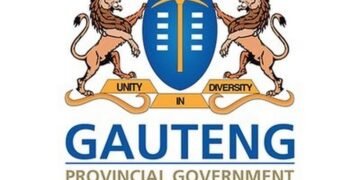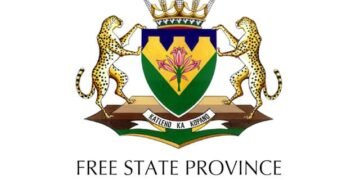Emmanuel Nursing School Courses and Requirements: Each course and programme at the Emmanuel Nursing School has varying Admission Entry Requirements which must be met in order to gain entry at Emmanuel Nursing School – On this page, you will learn more about the Emmanuel Nursing School Intake Courses and entry requirements, Admission and Application requirements for the Emmanuel Nursing School in the current academic year.
Emmanuel Nursing School Entry Requirements – Application requirements
The Emmanuel Nursing School Admission requirements varies depending on the type of course that you’re applying for, the academic level, and your nationality. This is mainly because colleges are allowed to set their entry requirements based on their own preferences or internal policies. They set the entry requirements for each course to ensure you have the right skills and knowledge to successfully complete the course.
The Emmanuel Nursing School admission requirements are made to assess your suitability for the course you’re applying for. In Fact, the application process highly depends on matching entry requirements and therefore you must pay extra attention to this section.
Emmanuel Nursing School Courses and Requirements
Although this page will provide you with useful information to familiarize yourself with what is needed to gain entry into Emmanuel Nursing School courses, it’s important you understand the qualifications needed for the course you wish to pursue.
For detailed information on the Emmanuel Nursing School specific courses and programme entry requirements please:
Emmanuel Nursing School Courses ; Emmanuel Nursing School Courses and Requirements
Emmanuel Nursing School Courses – Emmanuel Nursing School offers numerous courses and programs to its students. If you are an aspirant student seeking admission to various courses and programmes at Emmanuel Nursing School then you should check out the full list of courses offered by Emmanuel Nursing School
List of Courses Offered by Emmanuel Nursing School
Courses & Courseware Structure
Emmanuel is registered and accredited with the Department of Higher Education and Training (DHET) 2018/HE07/005, the Council for Higher Education (CHE) and the South African Nursing Council (SANC) to offer the following course(s):
1-year Higher Certificate in Nursing R169
Auxiliary Nurses are capable of delivering essential, skilled basic nursing care in a variety of healthcare settings. They combine nursing care with prevention and promotion – which makes this first-level nurse’s role that of a strong primary healthcare worker. This qualification signifies that the learner has attained a basic level of higher education knowledge and competence in nursing and is capable of applying such knowledge and competence in the workplace.
The nurse who completes this qualification will be able to:
- Apply knowledge of theory and practice of basic nursing care
- Assess, plan, implement and evaluate basic nursing care for individuals and groups throughout the life span
- Demonstrate professionalism when rendering basic nursing care
On successful completion of this qualification, the graduate is eligible for registration with the South African Nursing Council as an Auxiliary Nurse. The Auxiliary Nurse works under the supervision of a nurse with a National Diploma or Degree in Nursing within their applicable scope of practice. This basic knowledge, affective-, cognitive- and conceptual tools and practical skills obtained as part of this qualification prepares the Auxiliary nurse for additional higher education studies in nursing.
Learning assumed to be in place:
Access to this qualification is subject to holding a National Senior Certificate or an equivalent qualification at exit level 4, which includes:
- Communication level 4
- Mathematical Literacy level 4
- Life Sciences level 4
- Computer Literacy level 3
Recognition of prior learning (RPL):
Should a learner wish to apply for Recognition of Prior Learning (RPL) for access to this qualification or credit-bearing exemptions, an application must be submitted to Emmanuel Verpleegskool for individual assessment. No more than 50% of programme content will be accredited through the RPL policy as per CHE/SANC guidelines.
Minimum admission requirements: Emmanuel Nursing School Courses and Requirements
Access to this qualification is a National Senior Certificate with exemption to Higher Certificate studies with the appropriate selection of subjects, preferably:
- Biology/Life Sciences (at least D symbol / 50%)
- English Home Language or First Additional Language (at least D symbol / 50%)
- Maths literacy (at least D symbol / 50%) or Maths (at least E symbol / 40%)
- A score of at least 16 points on the scoring scale set out below as achieved in the National Senior Certificate (thus APS ≥ 16) in the applicant’s best 6 (six) subjects (excluding Life Orientation)
The outcomes of the programme as set out by the South African Nursing Council are:
- Apply basic knowledge of anatomy, physiology, biophysics, pharmacology and microbiology in the provision of nursing care
- Communicate effectively in various ways in the nursing context
- Use the scientific nursing approach to address the basic needs of individuals and groups in various healthcare settings.
- Demonstrate appropriate methods of interacting sensitively and professionally with individuals from diverse backgrounds
- Maintain professionalism in nursing practice within the ethico-legal framework
- Participate in addressing the needs of individuals and groups in a community
R169 consists of the following modules:
- Biomedical Sciences & Pharmacology (BMP 100)
- Basic Nursing Care (BNC100)
- Transcultural Nursing, Communication, Professionalism and Ethics (PP100)
- Community Health Nursing (CHS100)
The course consists of 120 credits, of which 72 credits must be acquired in accredited clinical facilities. Of your clinically acquired credits, 70% are supervised and mentored by registered nurses and/or clinical facilitators. Integrated learning will comprise 720 hours’ work done in a clinical skills laboratory or other work-based clinical experience. 1 credit = 10 notional hours.
3-year Diploma in Nursing (General Nurse) R171
General Nurses function as clinically focused, service-orientated, independent healthcare providers. The practice of General Nurse is evidence-based and focuses on quality service delivery within a broad spectrum of health services in a variety of settings, including community settings.
This qualification provides a basis for decision-making about what is within and beyond the defined scope of practice, as well as an understanding of the referral system in place for anything outside of the scope of practice.
The nurse who completes this qualification will be able to:
- Maintain professionalism
- Apply knowledge of biomedical, biotechnological and psycho-social sciences to the practice of nursing
- Develop, implement and evaluate population-based health care
- Assess, plan, implement and evaluate nursing care for individuals and groups with stable, uncomplicated health problems based on thorough assessment
- Deliver nursing care to sick or disabled individuals and groups with stable uncomplicated health problems
- Promote rehabilitation of individuals and groups with disabilities
- Diagnose and treat minor ailments
- Deliver safe maternal care
- Manage a health care unit
- Utilise principles of science and methodology in investigating nursing and health-related problems
Learning assumed to be in place:
- Communication skills level 4
- Mathematical Literacy level 4
- Life Sciences level 4
- Computer Literacy level 3
Recognition of prior learning (RPL):
Should a learner wish to apply for Recognition of Prior Learning (RPL) for access to this qualification or credit-bearing exemptions, an application must be submitted to Emmanuel Verpleegskool for individual assessment. No more than 50% of programme content will be accredited through the RPL policy as per CHE/SANC guidelines.
Minimum admission requirements: Emmanuel Nursing School Courses and Requirements
Access to this qualification is a National Senior Certificate with exemption to Higher Certificate studies with the appropriate selection of subjects, preferably:
- Biology/Life Sciences (at least D symbol / 50%)
- English Home Language or First Additional Language (at least D symbol / 50%)
- Maths literacy (at least D symbol / 50%) or Maths (at least E symbol / 40%)
- A score of at least 19 points on the scoring scale set out below as achieved in the National Senior Certificate (thus APS ≥ 19) in the applicant’s best 6 (six) subjects (excluding Life Orientation)
Outcomes of the programme as set out by the South African Nursing Council:
- Provide nursing care throughout the lifespan in various healthcare settings
- Render nursing care within a legal and ethical framework
- Apply knowledge of natural and biological sciences in the practice of nursing
- Apply knowledge of psycho-social sciences in the practice of nursing
- Apply knowledge of pharmacology in nursing practice
- Use and maintain healthcare information systems for nursing practice
- Manage a healthcare unit by implementing the management process
- Provide reproductive healthcare to promote and maintain optimum health of individuals and families
R171 consists of the following modules:
- Biomedical Sciences (BMS 100, BMS 200)
- Psycho-social Sciences: Sociology (PSS 100, PSS 200)
- Pharmacology (PHAR 100, PHAR 200)
- Basic Nursing Care (BNC 100, BNC 200, BNC 300)
- Community Health Nursing (CHN 100, CHN 200)
- Nursing Dynamics (NDY 100, NDY 200)
- Reproductive Health Care (RHC 100, RHC 200, RHC 300)
- Nursing Management (NM 200, NM 300)
- Health Information Systems (HIS 200, HIS 300)
The duration of the programme is three (3) academic years. One academic year consists of at least 44 weeks of full-time study.
The course consists of 364 credits, of which 200 credits must be acquired in accredited clinical facilities. Of your clinically acquired credits, 70% are supervised and mentored by registered nurses and/or clinical facilitators.
Integrated learning will comprise 2000 hours’ work done in a clinical skills laboratory or other work-based clinical experience. 1 credit = 10 notional hours.
Learners need to successfully complete each year to be able to progress to the next year and must complete the whole program to obtain the qualification of General Nurse. Fundamental subjects can be carried to the next year, but core subjects must all be passed.
For more information, new updates about Emmanuel Nursing School Courses and Requirements, and the latest information about the Emmanuel Nursing School admission and intakes for the current academic year Please visit the official website of the South African Nursing Council (SANC) at https://www.sanc.co.za.














